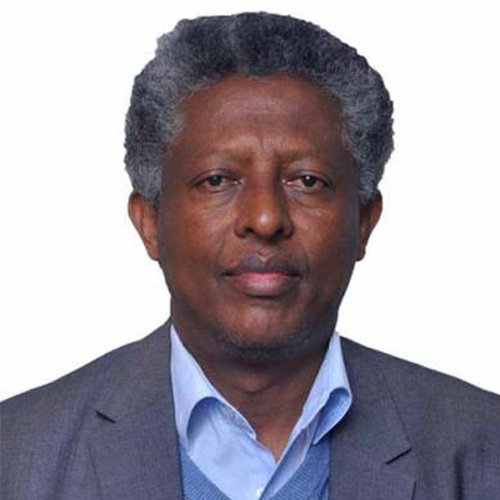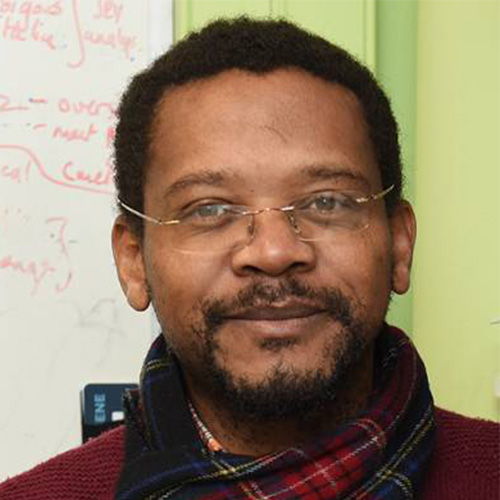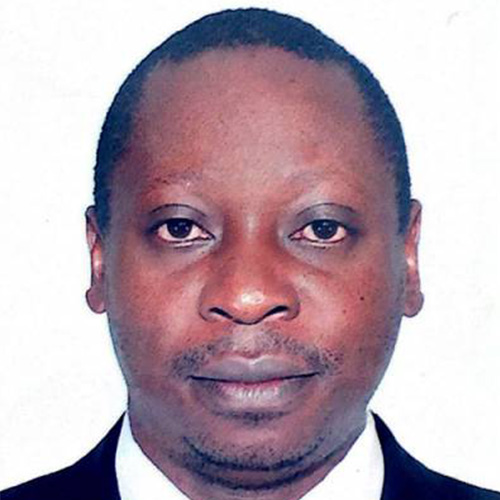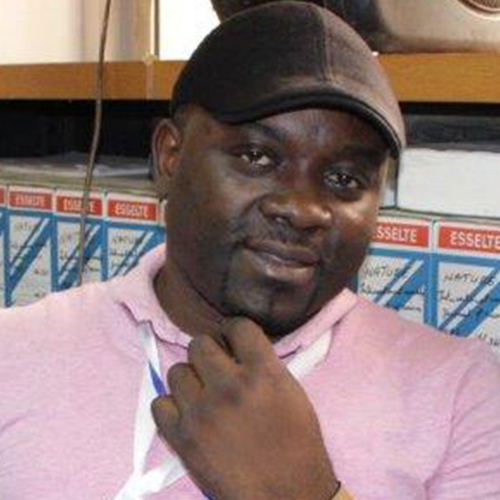AESA PROGRAMMES
- Building R&D Infrastructure
- Developing Excellence in Leadership, Training and Science in Africa (DELTAS Africa)
- Human Heredity and Health in Africa (H3Africa)
- Africa’s Scientific Priorities (ASP)
- Innovation & Entrepreneurship
- Grand Challenges Africa
- Grand Challenges Innovation Network
- Rising Research Leaders/Post-Docs
- AESA RISE Postdoctoral Fellowship Programme
- African Postdoctoral Training Initiative (APTI)
- Climate Impact Research Capacity and Leadership Enhancement (CIRCLE)
- Climate Research for Development (CR4D)
- Future Leaders – African Independent Research (FLAIR)
- Critical Gaps In Science
- Clinical Trials Community (CTC)
- Community & Public Engagement
- Mobility Schemes: Africa-India Mobility Fund
- Mobility Schemes: Science and Language Mobility Scheme Africa
- Research Management Programme in Africa (ReMPro Africa)
- Science Communication/Africa Science Desk (ASD)
- Financial Governance: Global Grant Community (GGC)
- AAS Open Research
- CARI Programmes
- Evidence Leaders Africa (ELA)
The Human Heredity and Health in Africa (H3Africa)
The Human Heredity and Health in Africa (H3Africa) was a major programme initiated in 2010 by the National Institute of Health (NIH), Wellcome, and African Society of Human Genetics (AfSHG).
H3Africa supported population-based studies that used genetic, clinical, and epidemiological tools to better understand how the interplay between human genes and the environment in uence disease susceptibility, pathogenesis, and prevention with the goal of improving the health of African populations.
Mapping the genetic diversity of Africans:
- Increased the understanding of why some diseases are more prevalent and devastating on the African continent than in the rest of the world.
- Promoted tailored public health interventions for African populations for maximum impact.
- Promoted the study and understanding of societal implications of genomics research leading to development of favourable community focused guidelines.
- Reduced the continent’s disease burden, which is the highest in the world and minimise healthcare costs through preventive medicine.
Meet the Team
In attempts to shift the centre of gravity of its funding for African science from the UK to Africa, Wellcome gave a grant of $11M to the African Academy of Sciences and the NEPAD Agency’s Alliance of Accelerating Science in Africa (AESA) to manage the phase II of its component of the H3Africa programme. The programme was completed.
 Abraham Aseffa
Abraham Aseffa Ethiopia
Tuberculosis Genetics Network in Africa (TBGENAfrica)
Dr Abraham Aseffa is the Deputy Director General at Armauer Hansen Research Institute (AHRI) in Ethiopia. He graduated in Medicine from Addis Ababa University (1984) and studied Microbiology at the University of Leipzig, Germany in 1990. He taught microbiology at Gondar College in Ethiopia until 1998 when he joined the WHO Immunology Research and Training Centre at the University of Lausanne, Switzerland for postdoctoral research. He moved to AHRI in Addis Ababa as senior scientist in 2001. Dr Aseffa has conducted several studies on infectious diseases in collaboration with national and international partners and co-authored over 250 publications. He has keen interest in postgraduate student training and has also been active in strengthening national and regional partnerships, particularly in clinical trial capacity building and health research ethics. He has served in several TDR, the Special Programme for Research and Training in Tropical Diseases, WHO and European & Developing Countries Clinical Trials Partnership advisory bodies. He is a member of the Ethiopian Academy of Sciences and the Third World Academy of Sciences (TWAS).
TBGENAfrica
Although tuberculosis is common and infectious, only 10% of infected individuals become sick. Understanding why this is the case could help develop better vaccines and drugs against TB. Recent analysis of the genetic make-up of the bacteria that cause TB suggests that TB first appeared when humans were evolving in Africa. It then accompanied them as they dispersed around the world. We think that during this time particular variants of the bacteria became adapted to particular human populations. Meanwhile, humans over many generations adapted to become more resistant to the TB bacteria and stay well. Thus, we think that to get TB disease you need the right combination of human and TB genetic make-ups. We will investigate this theory by collecting genetic material (DNA) from people with TB and from the bacteria that are infecting them. We will analyse them together to try to detect patterns of variation in humans that correlate with patterns of variation in bacteria. This could help identify new targets for vaccines and TB drugs. In parallel, we will build research capacity in cutting-edge science and carry out educational activities related to ethical issues associated with genome science in the African communities where we will work.
 Ambroise Wonkam
Ambroise Wonkam Cameroon
Hearing Impairment Genetics Studies in Africa (HI-GENES Africa)
After a MD training from University of Yaoundé I in Cameroon, he completed a thesis in cell biology and a medical genetics specialist training at University of Geneva in Switzerland, and a PhD in human genetics at South Africa’s University of Cape Town. He is currently a Professor at South Africa’s University of Cape Town.
His research interests are reflected in more than 100 peer-reviewed publications, which are in molecular, clinical, and ethical aspects of medical and human genetics; funded by numerous US National Institutes of Health and Welcome Trust grants, with specific focus on sickle cell disease, hearing impairment and incidental findings in genomic research in Africa.
He won the competitive Clinical Genetics Society International Award for 2014 from the British Society of Genetic Medicine. Prof Wonkam is Secretary of the African Society of Human Genetics, board member of the International Federation of Human Genetics Societies, council member of the Human Genome Organization and steering committee member of the Global Genetic Medicine Collaborative (G2MC).
Hearing Impairment Genetics Studies in Africa (HI-GENES Africa)
Hearing impairment remains the most disabling congenital disease, with higher burden in Africa. Congenital hearing impairment occurs in 6 per 1000 new-born in Africa. Early diagnosis and interventions for children with hearing impairment is recommended to maximise their cognitive, social-emotional, speech and language development. Half of congenital hearing impairment cases have a genetic aetiology, of which 70% are isolated and referred as non-syndromic (NS).
Despite a large number of identified genes, only two (GJB2 and GJB6) have been systematically studied in sub-Saharan Africans, for which prevalence of NSHI (non syndromic hearing impairment)-causal variants is close to zero. We estimated that known NSHI genes only explain ~4.1% of NSHI in African-Americans.
The HI-GENES Africa programme proposes to use whole genome sequencing (WES), to study the largest sample of sub-Saharan Africans from Cameroon, Mali, Ghana, and South Africa with prelingual NSHI, in order to identify novel NSHI genes and to better understand the genetic aetiology of NSHI in African populations. We will also engage policies makers, and support groups on psychosocial challenges experienced by families and people living with HI.
HI-GENES Africa has high public health significance, since it will specifically improve genetic diagnosis, and future prediction of treatment outcomes in sub-Saharan Africans, and people of African descent. The research vision of HI-GENES Africa is to become the network that facilitates diagnosis, care, and quality of life of people living with hearing impairment, aligned with best standards.
 Enock Matovu
Enock Matovu Uganda
Genetic Determinants of Two neglected tropical diseases (TrypanoGEN+)
Prof Enock Matovu is the Associate Professor at Makerere University in Uganda. He obtained his PhD in molecular parasitology from the University of Bern in Switzerland in 2001. He then returned to the Livestock Research Institute and continued work as a Research Officer. In 2004, Enock relocated to Makerere University and set up a vibrant research group, training graduates to post-doctoral level. Over time, he has acquired considerable experience in Human African Trypanosomiasis, including surveillance, diagnostics, drug resistance and clinical trials. In 2008, as a marker of esteem, Enock received the prestigious Royal Society Pfizer Award in recognition of his work on molecular mechanisms of drug resistance in African trypanosomes. The previous year (2007) he had obtained the Joint Third World Academy of Science Award for Young Scientists, for his contribution to molecular parasitology. He has served on various international committees in the course of his work. He is a current member of the WHO Expert Advisory Panel on Trypanosomiasis as well as Associate Editor for PLoS Neglected Tropical Diseases.
TrypanoGEN+
The over-arching aim of this network is to improve the health of people living in some of the poorest countries in the world that carry a disproportionate burden of infectious diseases. Human African Trypanosomiasis (HAT) and schistosomiasis are two neglected tropical diseases that claim the lives of thousands of people in the poorest parts of sub-Saharan Africa. They are two of the most important of the neglected tropical diseases. The World Health Organization has listed both diseases for elimination, but the current control strategies are inhibited by failure to target and treat some of the people that maintain the reservoir of infection thereby maintaining transmission. The aim of this project is to apply the latest advances in genomics to genetically identify these people and understand their differential response to infection. In the process, the next generation of African scientists in population genetics and genomics shall be trained.
TrypanoGEN+ research strategy will exploit the fact that some people are naturally able to control or even eliminate the parasites that cause the disease whilst others cannot. By comparing the genomes in resistant and susceptible people, genes and molecular pathways that are crucial in controlling disease progression will be identified. Identifying populations whose genetic disposition favours disease tolerance or hypersensitivity can be of value for national control programs to prioritise areas for immediate interventions. This will facilitate formulation of informed strategies for cost effective control measures.
 Alfred Amambua-Ngwa
Alfred Amambua-Ngwa Gambia
Pan African Malaria Genetic Epidemiology Network (PAMGEN)
Dr Alfred Amambua-Ngwa is a Senior Scientist and head of Malaria Population Biology Group in the Disease Control and Elimination Programme of Medical Research Council Unit The Gambia (MRCG). Dr Amambua-Ngwa obtained a PhD in Biochemistry from the Biotechnology Unit at the University of Buea, Cameroon in 2004 with a thesis research focus on identifying and characterising proteins associated with pathogenicity and immunity to Onchocerca volvulusinfections. He immediately joined the University of Buea teaching core as an Assistant Lecturer of biochemistry and molecular biology. He received four training awards from the International Programme in the Chemical Sciences (IPICs), developing skills in molecular genetics, recombinant DNA technology, reverse genetics, protein crystallography and bioinformatics at the Universities of Salford (UK), Nottingham (UK) and Lund (Sweden). He established recombinant DNA technology and reverse genetics at the University of Buea, directing the laboratory training of several master’s and PhD students. In 2006, he moved to MRCG to focus on malaria cell biology and population genetics with over 50 publications to his credit. He was the first African scientist to hold the prestigious MRC Career Development Award and is co-Principal investigator in several research and Capacity building programmes in cell biology, genomics and bioinformatics of infectious pathogens. He is a member of the African societies of Biochemistry, Antimicrobial resistance and Human Genetics.
For thousands of years, humans have been adapting to resist malaria parasites. In turn, malaria parasites evolve to evade our immune system and antimalarial drugs. Understanding this deadly evolutionary struggle is crucial to maintain the efficacy of antimalarial drugs, discovering new treatments, and developing effective vaccines.
Pan-African Malaria Genetic Epidemiology Network (PAMGEN) is a team of African scientists studying how genetic changes in humans and malaria parasites impact on the disease in individuals and communities in different ecological environments.
In order to infect humans, malaria parasites need to invade our red blood cells. PAMGEN will examine differences in humans and parasites DNA within particular populations of seven African countries (Gambia, Ghana, Mali, Cameroon, Kenya, Ethiopia and Madagascar). This work involves studying specific parasite ligand genes and receptors on the surface of human red blood cells that malaria parasites exploit during invasion. The network will also investigate potential relationships between genetic differences in all malaria genomes – human, parasite, and mosquito.
Initially, PAMGEN will focus on generating high-quality data that will be shared within the network and the wider scientific community. Ultimately, we will use human, parasite and vector population and functional genomics research to drive the development of new tools to support malaria elimination programmes across Africa.